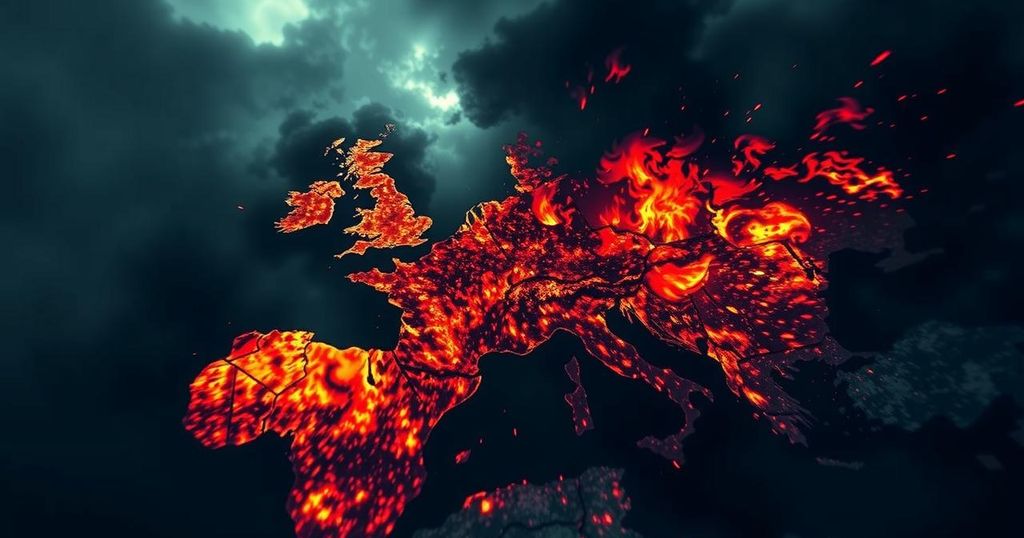Syria’s Rebel Offensive: A Shift in Power Amid Geopolitical Tensions
Syrian rebels have launched major assaults in the northwest, gaining significant territory, including Aleppo. This has posed serious challenges to President Assad’s forces, with Russian troops and Iranian militias losing ground. This rapid escalation follows a ceasefire in Lebanon, highlighting the volatile geopolitical landscape and competing interests among regional and global powers.
Following an offensive by Syrian rebels that has significantly altered the battlefield dynamics, a geopolitical turmoil unfolds within Syria. In recent days, the rebels launched extensive assaults on President Bashar al-Assad’s forces in the northwestern region, resulting in gains that include substantial control over Aleppo. Moreover, this assault led to Russian troops vacating a base near the city and Iranian-backed militias losing their hold on the town of Tel Rifaat close to the Turkish border.
These developments emerge as Iran and Russia, facing their own challenges elsewhere, grapple with the ramifications of this sudden shift in power. The rebel advance underscores the fragile state of security in a country that has been embroiled in conflict since the protests began in 2011, highlighting the intricate and often competing geopolitical interests of regional and international actors keen on asserting their influence.
The timing of the rebel offensive appears strategic, coinciding with a ceasefire negotiated between Israel and Hezbollah in Lebanon. The resultant impacts of these engagements not only reshape Syria’s landscape but also present a vivid illustration of how rapidly violence can escalate amidst existing rivalries among various global powers. For years, Iran and Russia have provided crucial military support to Assad’s regime, undertaking aerial bombardments and deploying ground forces to suppress the rebellion.
This continued struggle for dominance and control in Syria amplifies the complexities of foreign involvement, emphasizing the deeply intertwined nature of military and political strategies among Iran, Russia, and opposition forces in the region. The situation remains fluid, indicating potential shifts that could further alter the balance of power and intensify the ongoing conflict.
In summary, the recent rebel offensive serves as a reminder of Syria’s precarious geopolitical climate, influenced by a myriad of external powers dedicated to advancing their interests in the region. As these developments unfold, the implications for Assad’s regime and his foreign supporters remain significant and uncertain.
It is crucial to monitor the continuing events closely, as the potential for rapid escalations in violence and shifts in territorial control could have far-reaching consequences, not only for Syria but also for the broader regional stability.
Syria has been embroiled in conflict since 2011 when mass protests against President Bashar al-Assad prompted a brutal crackdown leading to widespread rebellion. The situation has evolved into a complex civil war characterized by many factions vying for control, along with significant international involvement from major global players like Iran and Russia. Supporting Assad, these nations have engaged militarily to maintain their influence in the region, but recent developments signal shifts that could disrupt their efforts. The relationship among regional actors continues to be strained, with competing interests complicating the quest for stability.
In conclusion, the recent rebel offensives in Syria have ignited a complex geopolitical situation, challenging the current authority of President Assad and testing the resolve of his foreign backers, notably Iran and Russia. The unpredictability of the region, rooted in profound rivalries among international powers, underscores a rapidly changing landscape with potential ramifications for not only Syria but the broader Middle Eastern geopolitical puzzle.
Original Source: www.nytimes.com




Post Comment